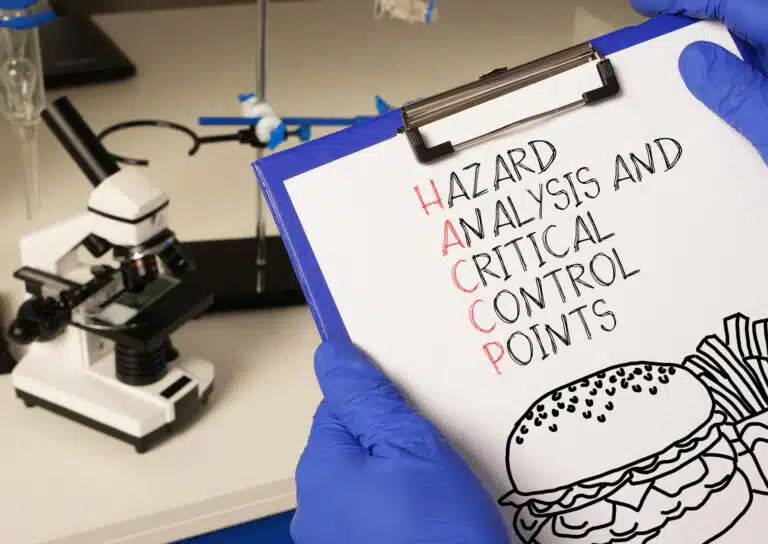Table of Contents
- Introduction
- Why Food Hygiene Is Critical for Catering Businesses
- Understanding UK Food Safety Regulations
- Choosing the Right Food Hygiene Courses
- Allergen Compliance and Natasha’s Law
- Implementing HACCP for Catering
- Preparing for FSA Inspections
- How Skilltopia’s Courses Help
- Practical Tips for Catering Hygiene
- Frequently Asked Questions
- Get Started with Skilltopia
Introduction
Starting a catering business in the UK is an exciting opportunity, whether you’re planning to cater weddings, corporate events, or private parties. However, success hinges on maintaining strict food hygiene standards to comply with UK laws, protect customers, and build a trusted reputation. From registering with your local council to achieving high FSA hygiene ratings, food safety is non-negotiable. This comprehensive guide covers the food hygiene essentials you need to launch a compliant catering business, with actionable steps and insights on how Skilltopia’s accredited online courses at skilltopia.co.uk/buy-courses can support your journey.
Why Food Hygiene Is Critical for Catering Businesses
Catering businesses face unique food safety challenges due to off-site preparation, transportation, and service at various venues. Proper hygiene ensures:
- Legal compliance: The Food Safety Act 1990 requires food handlers to be trained appropriately.
- Customer safety: Preventing foodborne illnesses protects clients and avoids liability.
- Reputation: High hygiene standards lead to 4–5 star FSA ratings, attracting clients in competitive markets like London, Birmingham, or Manchester.
- Business longevity: Avoiding fines, closures, or negative reviews ensures sustainability.
Skilltopia’s online training equips your team to meet these standards, ensuring your catering business starts strong and stays compliant.
Understanding UK Food Safety Regulations
Before launching your catering business, familiarise yourself with key UK regulations:
- Food Safety Act 1990: Mandates safe food handling and appropriate staff training.
- Regulation (EC) No 852/2004: Requires businesses to implement a food safety management system, such as HACCP.
- Natasha’s Law (2021): Mandates clear allergen labelling for pre-packed for direct sale (PPDS) foods, common in catering.
- FSA Hygiene Ratings: Inspections assess hygiene, facilities, and management, impacting your public rating.
You must also register your catering business with your local council at least 28 days before trading. This applies whether you operate from a commercial kitchen, home, or mobile unit. Contact your local environmental health team for guidance.
Choosing the Right Food Hygiene Courses
Training your staff is essential to meet legal requirements and pass inspections. Skilltopia offers three levels of accredited online courses tailored for catering businesses:
| Course Level | Who It’s For | Key Topics | Duration | Cost |
|---|---|---|---|---|
| Level 1 | Support staff (e.g., servers, delivery drivers) | Basic hygiene, contamination prevention | 1-2 hours | £12.50 |
| Level 2 | Food handlers (e.g., cooks, prep staff) | Temperature control, cross-contamination, allergens | 4–8 hours | £15.00 |
| Level 3 | Owners, managers | HACCP, legal compliance, safety management | 8-12 hours | £45.00 |
Recommendation: Most catering staff need Level 2, as they handle food directly. Owners or managers should take Level 3 to oversee safety systems. Support staff with minimal food contact can take Level 1. Enrol at skilltopia.co.uk/buy-courses.
Allergen Compliance and Natasha’s Law
Catering businesses often prepare PPDS foods (e.g., sandwiches, salads), making compliance with Natasha’s Law critical. This law requires clear labelling of the 14 major allergens:
- Celery, cereals containing gluten, crustaceans, eggs, fish, lupin, milk, molluscs, mustard, nuts, peanuts, sesame seeds, soya, sulphur dioxide.
How to comply:
- Train staff to identify and label allergens accurately (covered in Skilltopia’s Level 2 course).
- Use separate equipment to prevent cross-contamination.
- Provide allergen information to customers verbally and in writing.
- Keep allergen logs for inspections.
Skilltopia’s courses ensure your team understands allergen management, reducing risks and boosting customer confidence.
Implementing HACCP for Catering
HACCP (Hazard Analysis and Critical Control Points) is a legal requirement for UK food businesses, including caterers. It involves identifying risks and establishing controls to ensure food safety. Key steps include:
- Identify hazards: Biological (e.g., bacteria), chemical (e.g., cleaning agents), or physical (e.g., foreign objects).
- Determine critical control points: Steps where risks can be controlled (e.g., cooking, chilling).
- Set critical limits: Define safe parameters (e.g., cook poultry to 75°C).
- Monitor processes: Regularly check temperatures and hygiene practices.
- Take corrective actions: Address deviations (e.g., re-cook underheated food).
- Keep records: Document processes for inspectors.
- Review the system: Update HACCP plans regularly.
Skilltopia’s Level 3 course teaches managers how to create and maintain a HACCP plan tailored for catering, ensuring compliance and high FSA ratings.
Preparing for FSA Inspections
FSA inspections assess three areas: hygienic food handling, facility condition, and safety management. To prepare:
- Train all staff: Ensure everyone has the appropriate course level (Level 1, 2, or 3).
- Maintain facilities: Keep kitchens clean, with proper ventilation and pest control.
- Document everything: Store training certificates, HACCP plans, and cleaning logs.
- Conduct self-audits: Regularly check against FSA criteria.
- Schedule refreshers: Update training every 3 years to stay current.
Skilltopia’s online courses provide instant certificates, making it easy to prove compliance during inspections.
How Skilltopia’s Courses Help Your Catering Business
Skilltopia’s accredited online training is designed for catering businesses, offering:
- Flexibility: Self-paced courses fit busy catering schedules.
- Accreditation: Meets CIEH, Highfield, and RSPH standards, recognised by UK authorities.
- Affordability: Competitive pricing (Level 1: £12.50, Level 2: £15, Level 3: £45) with bulk discounts.
- Comprehensive coverage: Includes allergens, HACCP, and inspection preparation.
- Instant certification: Downloadable certificates for immediate compliance.
Enrol at skilltopia.co.uk/buy-courses to get started.
Practical Tips for Catering Hygiene
To ensure your catering business excels in food hygiene:
- Use portable equipment: Invest in insulated containers to maintain safe temperatures during transport.
- Create a hygiene checklist: Daily tasks for cleaning, temperature checks, and allergen labelling.
- Train for events: Prepare staff for high-pressure settings like weddings or festivals.
- Engage with councils: Register with the local authority for each area you operate in.
- Monitor feedback: Use customer reviews to identify hygiene improvements.
Frequently Asked Questions
Is food hygiene training mandatory for catering businesses?
UK law requires appropriate training for food handlers. Skilltopia’s courses provide recognised certification.
Do I need HACCP for a small catering business?
Yes, all food businesses need a HACCP-based system, tailored to their scale.
How often should I train my catering staff?
Initial training for new staff and refreshers every 3 years are recommended.
Are Skilltopia’s courses suitable for catering?
Yes, our accredited courses cover catering-specific challenges like allergens and mobile operations.
Get Started with Skilltopia
Launching a catering business in the UK requires a strong foundation in food hygiene. Skilltopia’s online courses ensure your team is compliant, confident, and ready for success. Visit skilltopia.co.uk/buy-courses to enrol or contact hello@skilltopia.co.uk for tailored training solutions.
Skilltopia is your trusted provider of accredited online food hygiene training for UK catering businesses. Start safe, stay successful!






